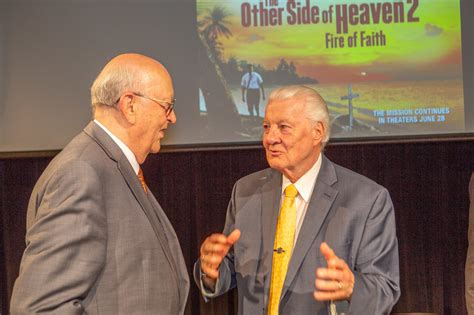A Quote by Thomas L. Dumm
We can never leave loneliness behind completely - it is part of what forms us.
Related Quotes
A boy told me if he roller-skated fast enough his loneliness couldn't catch up to him, the best reason I ever heard for trying to be a champion. What I wonder tonight pedaling hard down King William Street is if it translates to bicycles. A victory! To leave your loneliness panting behind you on some street corner while you float free into a cloud of sudden azaleas, pink petals that have never felt loneliness, no matter how slowly they fell.
We leave something of ourselves behind when we leave a place. We stay there even though we go away and there are things in us we can find again only by going back there. We travel to ourselves when we go to a place. We have covered a stretch of our life no matter how brief it may have been but by traveling to ourselves we must confront our own loneliness. And isn’t it so that everything we do is done out of fear of our loneliness? Isn’t that why we renounce all the things we will regret at the end of our life?
I grew up in a very religious family, so that was never going to leave me. I just accepted it over the years. Although I'm not religious myself, it is so much a part of me. It's a part of my history, a part of my tradition and my culture, so I don't want to just throw it away and leave it behind, because it's made me who I am today.
Usually we regard loneliness as an enemy. Heartache is not something we choose to invite in. It's restless and pregnant and hot with the desire to escape and find something or someone to keep us company. When we can rest in the middle, we begin to have a nonthreatening relationship with loneliness, a relaxing and cooling loneliness that completely turns our usual fearful patterns upside down.
We can leave a place behind, or we can stay in that place and leave our selfishness (often expressed in feeling sorry for ourselves) behind. If we leave a place and take our selfishness with us, the cycle of problems starts all over again no matter where we go. But if we leave our selfishness behind, no matter where we are, things start to improve.
Leaving love behind is never easy, for it also asks that we leave behind the part of ourselves that did the loving. And yet for all but the very fortunate and the very foolish, this difficult transition is an inevitable part of the human experience, of the ceaseless learning journey that is life - because, after all, anything worth pursuing is worth failing at, and fail we do as we pursue.
Where are they now that we, the men whom they sent off to war, have returned? These are commanders who have deserted their troops, and there is no more serious crime in the law of war. The Army says they never leave their wounded. The Marines say they never leave even their dead. These men have left all the casualties and retreated behind a pious shield of public rectitude. They have left the real stuff of their reputation bleaching behind them in the sun in this country.


































